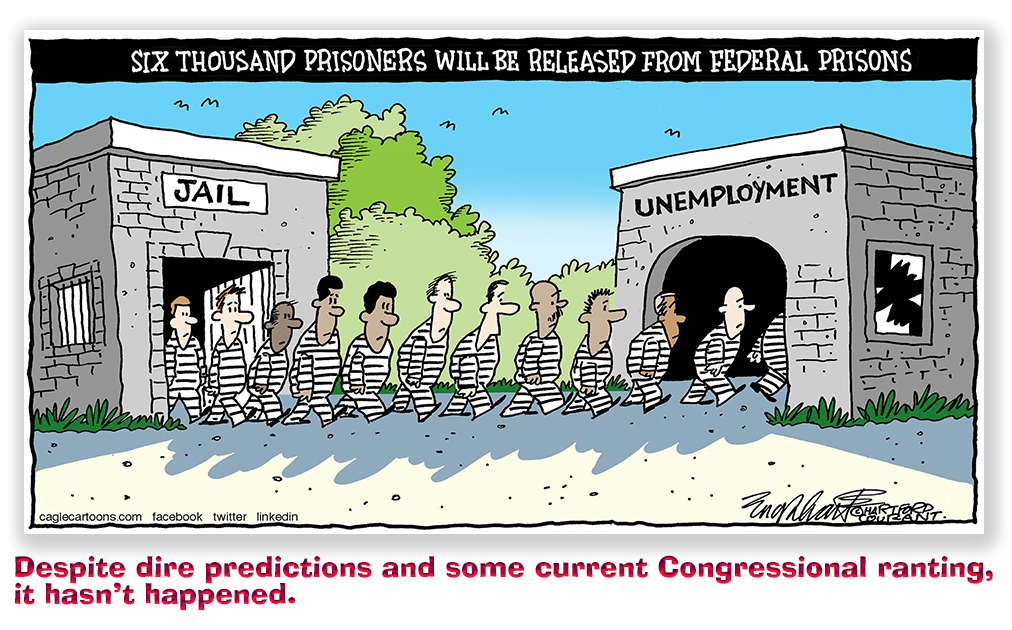We post news and comment on federal criminal justice issues, focused primarily on trial and post-conviction matters, legislative initiatives, and sentencing issues.

SPIRIT OF THE SEASON
The Romans had a saying, “De mortuis nil nisi bonum dicendum est,” or – as my sainted Latin teacher Emily Bernges would have translated, “Of the dead, nothing but good shall be said.”
This sentiment is enshrined in federal law as the “abatement ad initio” doctrine, which holds that a trial conviction is vacated when a defendant dies before he or she can exhaust the direct appeal process. The doctrine is followed by every federal court in the country.
In a Scrooge-worthy appeal in the 1st Circuit, however, the government argued last week that the Circuit should “break new ground by holding that a defendant’s conviction outlasts his death and does not get wiped away just because he died before his appeal could be heard,” according to Reuters.
 Former biotech chief executive Frank Reynolds was convicted of securities fraud in 2020 and sentenced to 84 months. He died a year ago with his appeal still pending. In its argument, the government admitted that every appellate circuit in America would vacate Frank’s conviction, but it argued that those courts’ opinions should not matter. Vacating the conviction and “restitution order when a defendant dies while his or her direct appeal is pending would flout [a] clear Congressional directive,” the government contends, that when a defendant subject to a restitution order dies “the individual’s estate will be held responsible for any unpaid balance of the restitution amount” under 18 USC § 3613(b).
Former biotech chief executive Frank Reynolds was convicted of securities fraud in 2020 and sentenced to 84 months. He died a year ago with his appeal still pending. In its argument, the government admitted that every appellate circuit in America would vacate Frank’s conviction, but it argued that those courts’ opinions should not matter. Vacating the conviction and “restitution order when a defendant dies while his or her direct appeal is pending would flout [a] clear Congressional directive,” the government contends, that when a defendant subject to a restitution order dies “the individual’s estate will be held responsible for any unpaid balance of the restitution amount” under 18 USC § 3613(b).
At oral argument, one skeptical judge told the government that it needed “a pretty good argument to upset an apple cart that is going uniformly across the country without any sign of being a big problem.” Another member of the panel noted that the DOJ could always bring a civil case against a defendant’s estate for restitution.
United States v. Reynolds, Case No 20-1268 (1st Cir, argued Dec 4, 2023)
Reuters, Convictions should outlive defendants’ deaths, US tells appeals court (December 4, 2023)

CONSERVATIVE SUPPORT FOR CARES ACT HOME CONFINEES
The Senate has yet to take up S.J.Res. 47, the Republican effort to force 3,000 CARES Act home confinees back to prison. Last week, officials of the Conservative Political Action Coalition and the Faith and Freedom Coalition – wrote in The Hill that “the CARES Act’s home confinement provision slowed the virus, saved millions of taxpayer dollars, and maintained public safety. By all measures, it has been a success.”

The authors challenged Republican arguments that CARES Act prisoners were committing new crimes and terrorizing communities. “Of the people moved to home confinement, 521 were returned to custody. This equates to a 4 percent recidivism rate, less than one-tenth of the BOP average. But looking at the numbers more closely, the CARES Act recidivism rate is much more impressive than that. Of the 521 returned to prison, 296 were sent back for positive drug or alcohol tests, 90 for leaving their homes, and 113 for technical violations. That means that only 22 people were re-incarcerated for committing new crimes.”
The recidivism rate for new crimes works out to 0.2%, about 1/200th of the BOP average.
The Hill, There’s no reason to send these 3,000 people in home confinement back to federal prison (December 3, 2023)

JOBS FOR ALL!
A bipartisan group of Representatives last week introduced the BOP Direct-Hire Authority Act, H.R. ____ (no bill number yet) intended to alleviate BOP staffing shortages by letting the agency hire personnel directly instead of the standard federal employment process that goes through the federal Office of Personnel Management and takes up to six months.
 Reps Glenn Grothman (R-WI) and Matt Cartwright (D-PA) are spearheading the effort to try to turn around staffing losses of 20% in the last 7 years. The bill is supported by 11 co-sponsors and the Council of Prison Locals C-33, the largest nationwide BOP employees union. union for BOP employees nationwide.
Reps Glenn Grothman (R-WI) and Matt Cartwright (D-PA) are spearheading the effort to try to turn around staffing losses of 20% in the last 7 years. The bill is supported by 11 co-sponsors and the Council of Prison Locals C-33, the largest nationwide BOP employees union. union for BOP employees nationwide.
The bill would provide direct-hire authority for a BOP facility until it reaches a level of 96% staffing level.
H.R. ___(no bill number yet), BOP Direct Hire Authority Act
Press release, Grothman, Cartwright Introduce Bipartisan Bill to Address Staffing Shortage in Bureau of Prisons (December 6, 2023)
– Thomas L. Root





